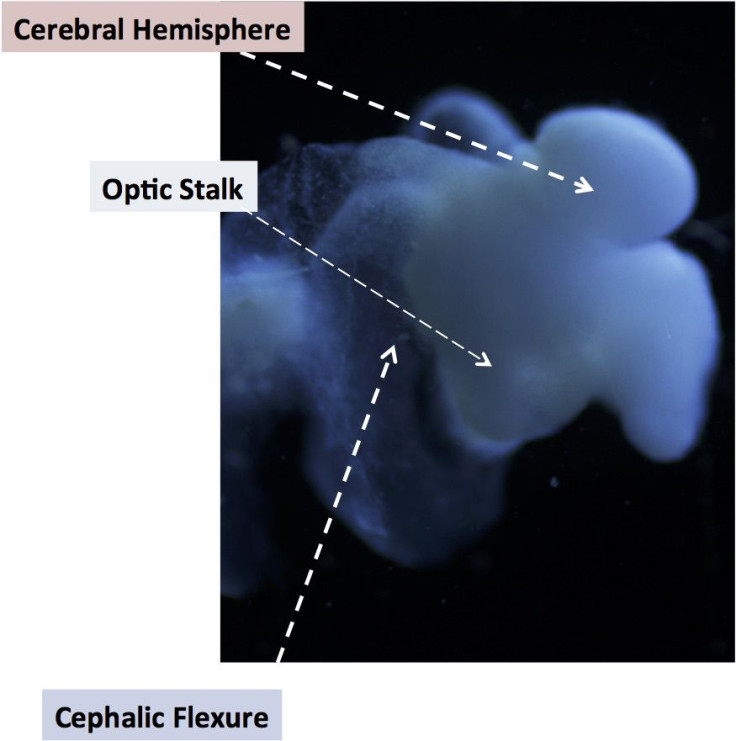Human Brain Grown In A Lab Out Of Skin Cells By Scientists

Scientists have grown an almost fully formed human brain in a lab. The researchers said the brain could help in expanding our knowledge of neurological diseases like Alzheimer’s.
The unconscious brain, which is about the size of a pea, is comparable to that of a five-week fetus, the scientists from Ohio State University said in a press release Tuesday. The brain was engineered from human skin cells, but details of the method were not revealed because of a pending patent, they said.
Lead researcher Rene Anand said that the organ was a complete brain. "Not only does it look like a brain, it is expressing all of the genes that help make a brain, and that means the entire thing from cortex to the spinal cord is present," he said, according to the Guardian.
However, he added that the brain has no sensory input or consciousness, which negated any ethical issues. "It has no sensory input whatsoever, so largely it is a living tissue that replicates the brain," he reportedly said.
Anand said that producing the brain took about 12 weeks, and allowing it to mature further would require them to create a network of blood vessels that is currently beyond their abilities. “We’d need an artificial heart to help the brain grow further in development,” he reportedly said.
However, several unaffiliated researchers told the Guardian that they were skeptical of the quality of the work without access to the data that was used to form the brain, and added that it was troubling how Anand had approached the press before their results were peer reviewed.
“When someone makes such an extraordinary claim as this, you have to be cautious until they are willing to reveal their data,” Zameel Cader, a consultant neurologist at the John Radcliffe Hospital in Oxford, told the Guardian.
However, Anand denied that his data was being kept secret. "Actually the data has been used in several different federal and private agency grants," he told ABC. "Many of their scientists have seen all of the data and I think The Guardian article probably refers to scientists who are correctly being cautious.
"I think when you make a claim like this, any good scientist would want to see all the data, but that data will become publicly available after we complete our invention disclosure process," he added.
The team said that it is focusing its work in the area of military research to help understand how traumatic injuries and stress disorders affect the brain. "And when there are genetic causes or environmental causes, we can assess how they alter the migration of cells, for example, or the formation of synapses or the formation of circuits,” Anand reportedly said.
© Copyright IBTimes 2024. All rights reserved.











